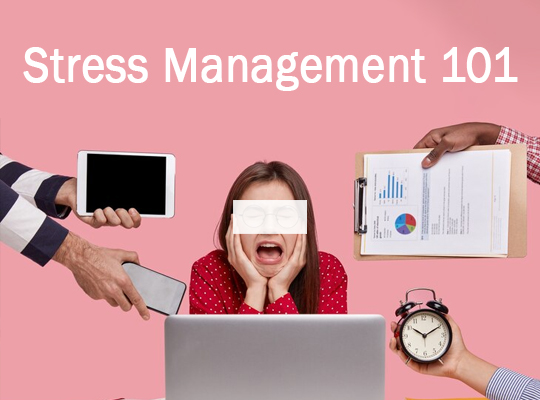For many people in today’s hectic and demanding environment, stress has become an unavoidable aspect of daily existence. From work deadlines to family responsibilities, the pressures can feel overwhelming at times. However, mastering stress management techniques is crucial for maintaining our mental, emotional, and physical well-being. In this blog, we’ll explore Stress Management 101: Strategies for Finding Balance in a Busy World.
Understanding Stress
Before diving into stress management strategies, it’s essential to understand what stress is and how it affects us. Stress is the body’s natural response to perceived threats or challenges. While a certain level of stress can be motivating and even beneficial, chronic or excessive stress can have detrimental effects on our health and quality of life. Common symptoms of stress include irritability, fatigue, headaches, muscle tension, and difficulty concentrating.
Stress Management Strategies
- Identify Stress Triggers: The first step in managing stress is identifying what triggers it. Keep a stress journal to track stressful events, situations, or thoughts. Once you recognize your stress triggers, you can develop strategies to cope with them more effectively.
- Practice Relaxation Techniques: Incorporate relaxation techniques into your daily routine to help reduce stress levels. Deep breathing exercises, meditation, progressive muscle relaxation, and guided imagery are effective methods for promoting relaxation and reducing tension.
- Set Yourself First: Give yourself the attention and resources you need by doing things that feed your body, mind, and spirit. This may include getting regular exercise, eating a balanced diet, getting enough sleep, spending time in nature, and pursuing hobbies or interests that bring you joy.
- Set Boundaries: Learn to say no to commitments or activities that overwhelm you or drain your energy. Establish healthy boundaries in your personal and professional life to protect your time, energy, and well-being.
- Practice Time Management: Manage your time effectively by prioritizing tasks, breaking them down into smaller, manageable steps, and setting realistic deadlines. Use tools such as to-do lists, calendars, and time-blocking techniques to stay organized and focused.
- Stay Connected: Seek support from friends, family members, or a trusted therapist or counselor. Social support can provide a valuable buffer against stress and help you navigate life’s challenges with greater resilience.
- Focus on What You Can Control: Instead of dwelling on things beyond your control, focus on what you can influence or change. Practice acceptance and let go of perfectionism, unrealistic expectations, and the need to please others.
- Engage in Mindfulness: Incorporate mindfulness practices into your daily life to cultivate present-moment awareness and non-judgmental acceptance. Mindfulness meditation, mindful eating, and mindful movement can help you manage stress and enhance overall well-being.
- Seek Professional Help if Needed: If you’re struggling to cope with stress on your own, don’t hesitate to seek professional help. A therapist or counselor can provide guidance, support, and coping strategies tailored to your individual needs.
- Build an Attitude of Gratitude: Make an effort to think positively about the things in your life. Keep a gratitude journal and regularly reflect on the things you’re thankful for, no matter how small.
Conclusion
In conclusion, stress management is an essential skill for navigating the challenges of modern life and maintaining overall well-being. By implementing these strategies for finding balance in a busy world, you can reduce stress levels, improve resilience, and cultivate a greater sense of peace and harmony in your life. Keep in mind that stress management is a journey, and it’s acceptable to ask for help and direction when needed. With dedication and practice, you can empower yourself to live a happier, healthier, and more balanced life.

